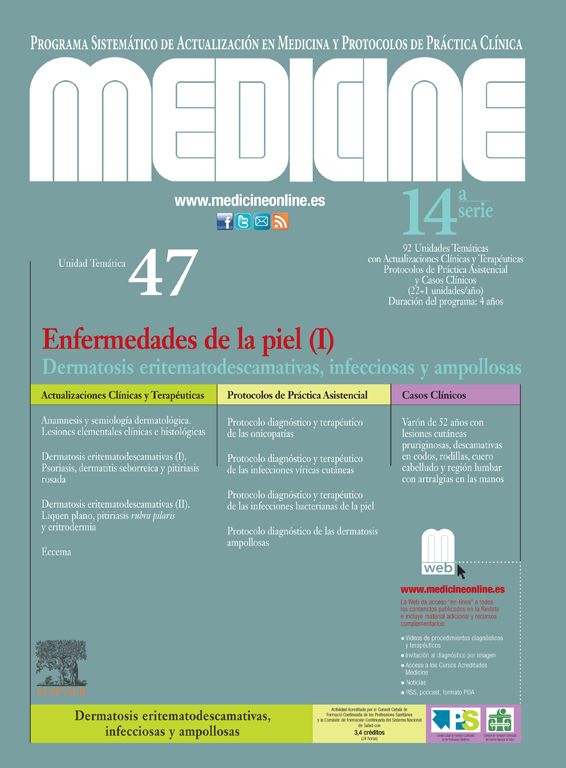Alrededor de un 20% de los pacientes con adenocarcinoma de pulmón metastásico van a tener una mutación accionable que puede ser tratada con una terapia dirigida. Los tratamientos con inhibidor de la tirosina quinasa (ITK) tanto de EGFR como ALK y ROS-1 han demostrado beneficio clínico en aquellos pacientes con dicha mutación, mayor que con tratamientos de quimioterapia. Por ello, es imprescindible estudiar estas alteraciones moleculares antes de comenzar el tratamiento antineoplásico. Existen varios ITK de distintas generaciones con diferentes grados de eficacia. Conocer los mecanismos de resistencia a estas terapias también es necesario para mejorar dichos tratamientos. Determinar otras mutaciones menos frecuentes puede suponer una opción terapéutica en pacientes que puedan recibir el tratamiento dirigido.
Around 20% of patients with metastatic lung adenocarcinoma will have an actionable mutation that can be treated with targeted therapy. Tyrosine kinase inhibitor (TKI) treatment of EGFR as well as ALK and ROS-1 have demonstrated clinical benefits that are greater than with chemotherapy treatments in patients with said mutations. Therefore, it is essential to study these molecular alterations before beginning antineoplastic treatment. There are various TKI of different generations and with different degrees of efficacy. Knowing the mechanisms of resistance to these therapies is also necessary to improving said treatments. Determining other less frequent mutations may be a therapeutic option in patients who can receive targeted therapy.
Identifíquese
¿Aún no es suscriptor de la revista?
Comprar el acceso al artículo
Comprando el artículo el pdf del mismo podrá ser descargado
Teléfono para incidencias
De lunes a viernes de 9h a 18h (GMT+1) excepto los meses de julio y agosto que será de 9 a 15h



